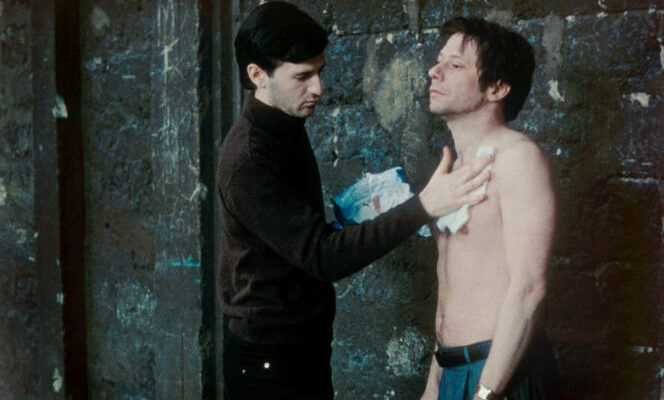Never, undoubtedly, the need to watch films together, to discuss about them, was felt so much. Especially when the works in question speak of the time with such urgency and poetry. So you have to run to the Center Pompidou in Paris, where a retrospective of Nicolas Klotz and Elisabeth Perceval’s films – “Le cinéma en commun” – takes place until December 19, at the initiative of the cinemas manager, Sylvie Pras, and the programmer Judith Revault d’Allones.
For about thirty years, the couple of directors have been leading a cinematographic adventure of rare coherence, building a “world-work”, since their first film shot in India, in super-16 millimeters, Pandit Ravi Shankar (1986), portrait of the famous sitar player (to be discovered on December 16), until their last feature film, We say revolution (December 13), plastic work of more than two hours, going back in time in a way, in which a story is repeated of “hunters” and hunted men, of fugitives seeking to inhabit the world, from Brazzaville to Sao Paulo.
Like a sky without borders
The gaze of Nicolas Klotz and Elisabeth Perceval is immense like a sky that knows no borders. The individual caught in the mesh of a dehumanizing policy vis-à-vis climatic and political refugees, and destitute in view of the multiple perils threatening the planet could be the common denominator of this ample filmography. In total, around thirty films, short or long, documentaries or fictions, several of which are still in the works – to mention only a few feature films released in theaters, Pariah (2000), The injury (2004), The Human Question (2007), Low Life (2011), The Heroic Lande. The border is burning (2018). In perpetual fabrication, erudite but never intimidating, the cinema of Klotz / Perceval is enriched by contact with philosophers (including Jean-Luc Nancy, who died on August 23, 2021, or even Marie-José Mondzain), sociologists, anthropologists , critics too (Nicole Brenez, Cyril Neyrat…).
Coming from a family of workers in Nanterre (Hauts-de-Seine), Elisabeth Perceval began to play in the theater in the 1980s, while Nicolas Klotz comes from the cinema (editing, photography). Their work is nourished by their respective backgrounds. “I spent thirty years of my life in the cities, sharing the daily life of people with an immigrant background. I have not learned to live otherwise ”, summarizes Elisabeth Perceval. Borders must fall, social, artistic, etc. Making films is not just a matter for directors, and it is the other “revolution” that Klotz and Perceval are calling for: how to share the word in order to rethink cinema?
You have 58.23% of this article to read. The rest is for subscribers only.
